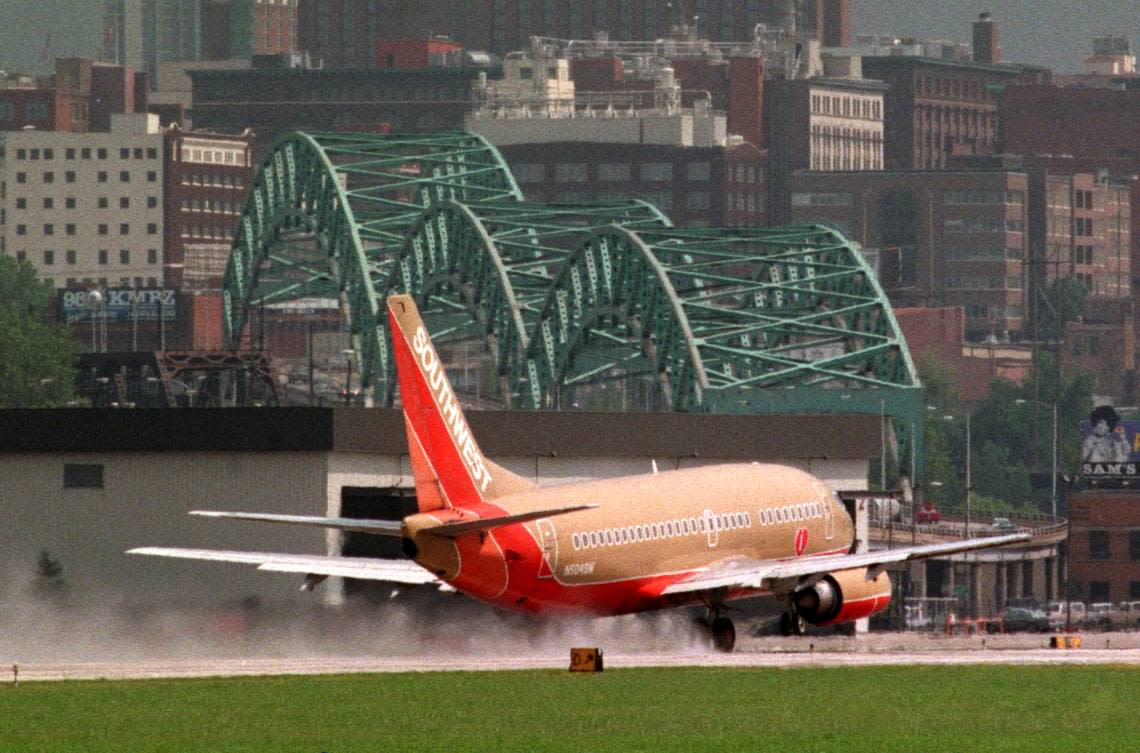Airlines may soon give refunds for some flight delays, cancellations under Senate bill

It feels like a common air travel phenomenon. You show up at the airport two hours before a flight only to watch the departure time get repeatedly pushed back until you’ve spent most of your day in the terminal.
Or worse, you’re on your way to the airport and get a notification that your flight is canceled, setting off a scramble to get to your destination without losing money on hotel reservations.
There’s currently no requirement that the airlines compensate passengers when those flights are delayed or canceled unless a passenger is “bumped” from a scheduled flight.
That could change under a new bill passed by the Senate 88-4 Thursday night. The Reauthorization of Federal Aviation Administration includes several provisions aimed at increasing consumer protections on airplanes – including a provision that will make the airlines automatically refund people after their flights are canceled or delayed.
“If they cancel your doggone flight, the least they can do is give you the power,” said Sen. Josh Hawley, a Missouri Republican. “They refund you automatically, it puts you in the driver’s seat.”
Originally, the bill required customers to request refunds if their flight was canceled or delayed. Hawley, along with Sen. Elizabeth Warren, a Massachusetts Democrat, pushed for the refunds to be automatic, matching a Department of Transportation proposal from earlier this year.
Under the provision, passengers are entitled to a full refund or voucher if a flight is canceled or significantly delayed and they choose not to take an alternate flight provided by the airline. Significantly delayed is defined as three or more hours on a domestic flight or six or more hours on an international flight.
In 2023 around 1.2% of the 16.3 million U.S. flights were canceled, according to the Department of Transportation. That’s around 195,000 flights. On a Friday morning in May, 100 flights out of, into, or within the U.S. were canceled. Another 2,155 flights were delayed.
While the new provision provides more protections for passengers than currently exist – they still fall short of the protections provided by other countries.
Since 2005, the European Union has required airlines to provide cash payments to passengers flying either within European Union countries or from European Union countries to other countries if a flight is delayed because it’s the airline’s fault (but for severe weather). The rules also apply in Iceland, Norway, and Switzerland.
Under their rules, a passenger can receive between 250 and 600 Euros if their flight is delayed more than two hours, depending on the distance. If the passenger chooses to take an alternate flight, they are still entitled to payment, the amount is just cut by 50 percent.
For Canada, the payments are even higher, ranging between 400 and 1,000 CAD if the delay is the airline’s fault.
Asked about how the new U.S. rules still fall short of other countries, Warren said she was hopeful that the Department of Transportation would step up its consumer protection.
“It was a great victory to get automatic refunds when airlines cancel tickets but there’s more to do,” Warren said. “The good news is the Department of Transportation has shown that they’re ready to step up.”
There are some other protections in the bill. Airlines will no longer be able to charge passengers extra for getting seats next to children under 14 years old. And the Department of Transportation is required to keep a dashboard so people can compare consumer protections between airlines, something it’s already doing.
Hawley, too, said he’d be supportive of additional consumer protections.
“It’s such a terrible experience,” Hawley said. “The airlines have all the power, they’re cartels essentially. As anybody who flies knows, they just do whatever they want. They screw people all the time.”
Sen. Jerry Moran, a Kansas Republican who helped write the bill, said while the consumer protections will help prevent the airlines from taking advantage of its passengers, the bill’s biggest benefit to passengers is that it improves the safety of air travel.
“The most tangible way this bill affects folks is increasing the safety when people are flying,” Moran said. “It does that by increasing the support for air traffic control, air traffic controllers and it gives FAA the authority to do the research and the work necessary to make flying more safe.”

